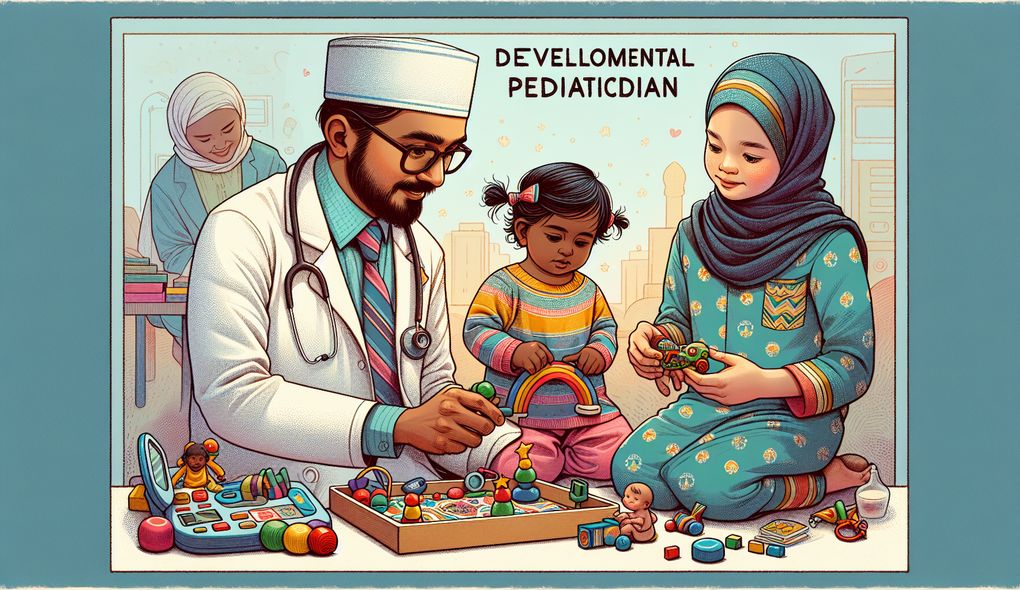How do you provide guidance and support to families of children with developmental disorders?
INTERMEDIATE LEVEL

Sample answer to the question:
As a Developmental Pediatrician, I provide guidance and support to families of children with developmental disorders by offering them information, education, and resources. I take the time to sit down with the families and listen to their concerns and questions. I provide them with detailed explanations about their child's condition, including the possible causes, symptoms, and available treatment options. I also collaborate with other healthcare professionals to create a comprehensive treatment plan that meets the unique needs of each child. Additionally, I connect families with support groups and community resources that can offer additional assistance and support.
Here is a more solid answer:
As a Developmental Pediatrician, I have a deep understanding of various developmental and behavioral disorders in children, including autism spectrum disorder, ADHD, and learning disabilities. When working with families, I prioritize effective communication and interpersonal skills to ensure that they feel heard, understood, and empowered to make informed decisions about their child's care. I take the time to establish a strong rapport with families and create a safe space for open and honest conversations. I provide families with comprehensive information about their child's condition, using clear and jargon-free language. I also address any questions or concerns they may have, providing evidence-based explanations and realistic expectations. In addition to direct support, I collaborate with other healthcare professionals to coordinate and manage the care of my patients. I am well-organized and maintain a manageable caseload, allowing me to give each family the time and attention they need. I am committed to patient-centered care and follow ethical guidelines in my practice.
Why is this a more solid answer?
The solid answer expands on the basic answer by providing specific details and examples of how the candidate provides guidance and support to families of children with developmental disorders. It demonstrates the candidate's in-depth knowledge of developmental and behavioral disorders, highlights their excellent communication and interpersonal skills, and emphasizes their organizational skills and commitment to patient-centered care. However, it could still benefit from additional examples to further illustrate the candidate's experience and expertise.
An example of a exceptional answer:
As a Developmental Pediatrician, I provide comprehensive and individualized guidance and support to families of children with developmental disorders. I have a strong foundation of knowledge and experience in the field, allowing me to accurately diagnose and effectively treat a wide range of developmental and behavioral disorders. When working with families, I prioritize empathy and patience, recognizing the unique challenges they face. I take a holistic approach, addressing not only the medical aspects but also the emotional and social well-being of the child and family. I ensure that families have access to a network of support, connecting them with community resources, support groups, and other healthcare professionals. I actively involve families in the decision-making process, collaboratively developing treatment plans that align with their goals and values. I continuously seek opportunities for professional development to stay current with the latest research and advancements in the field. Through my dedication and commitment, I strive to empower families and make a lasting positive impact on their lives.
Why is this an exceptional answer?
The exceptional answer goes above and beyond by providing a comprehensive and detailed response to how the candidate provides guidance and support to families of children with developmental disorders. It demonstrates the candidate's extensive knowledge and expertise in the field, showcases their empathetic and holistic approach, and highlights their commitment to continuous learning and improvement. The answer also emphasizes the candidate's dedication to empowering families and making a significant impact on their lives. It provides specific examples and addresses all the evaluation areas mentioned in the job description.
How to prepare for this question:
- Familiarize yourself with different developmental and behavioral disorders in children, particularly autism spectrum disorder, ADHD, and learning disabilities.
- Practice active listening and effective communication skills, focusing on empathy and understanding when interacting with families.
- Develop your organizational skills to manage a caseload and coordinate with other health services effectively.
- Keep up-to-date with the latest research and developments in developmental pediatrics through continuing education and professional development activities.
- Reflect on your past experiences working with families of children with developmental disorders and identify specific examples that demonstrate your ability to provide guidance and support.
What are interviewers evaluating with this question?
- In-depth knowledge of developmental and behavioral disorders in children
- Excellent communication and interpersonal skills for interacting with children, families, and healthcare teams
- Empathy and patience to work with children who have special needs and their families
- Organizational skills to manage a caseload and coordinate with other health services
- Commitment to patient-centered care and the ethical practice of medicine

